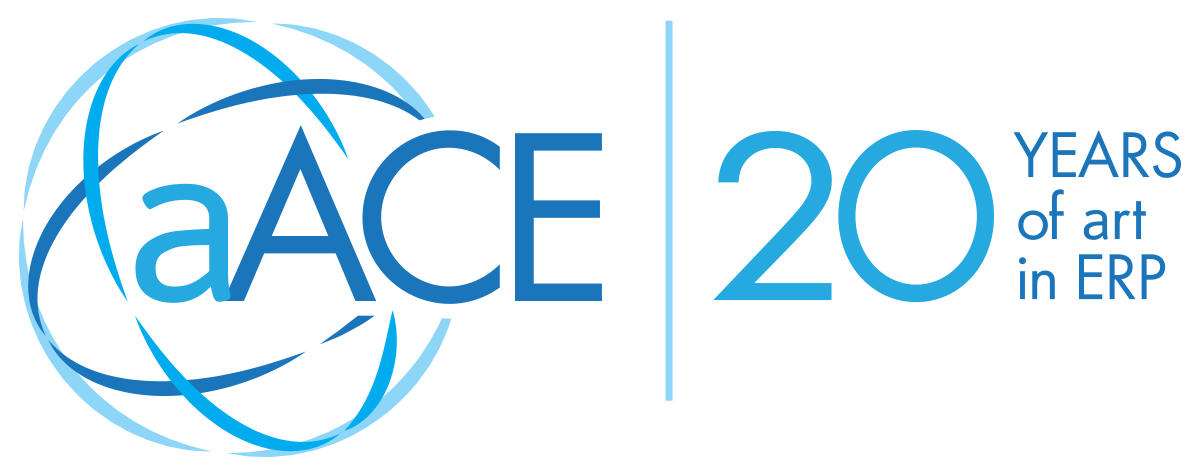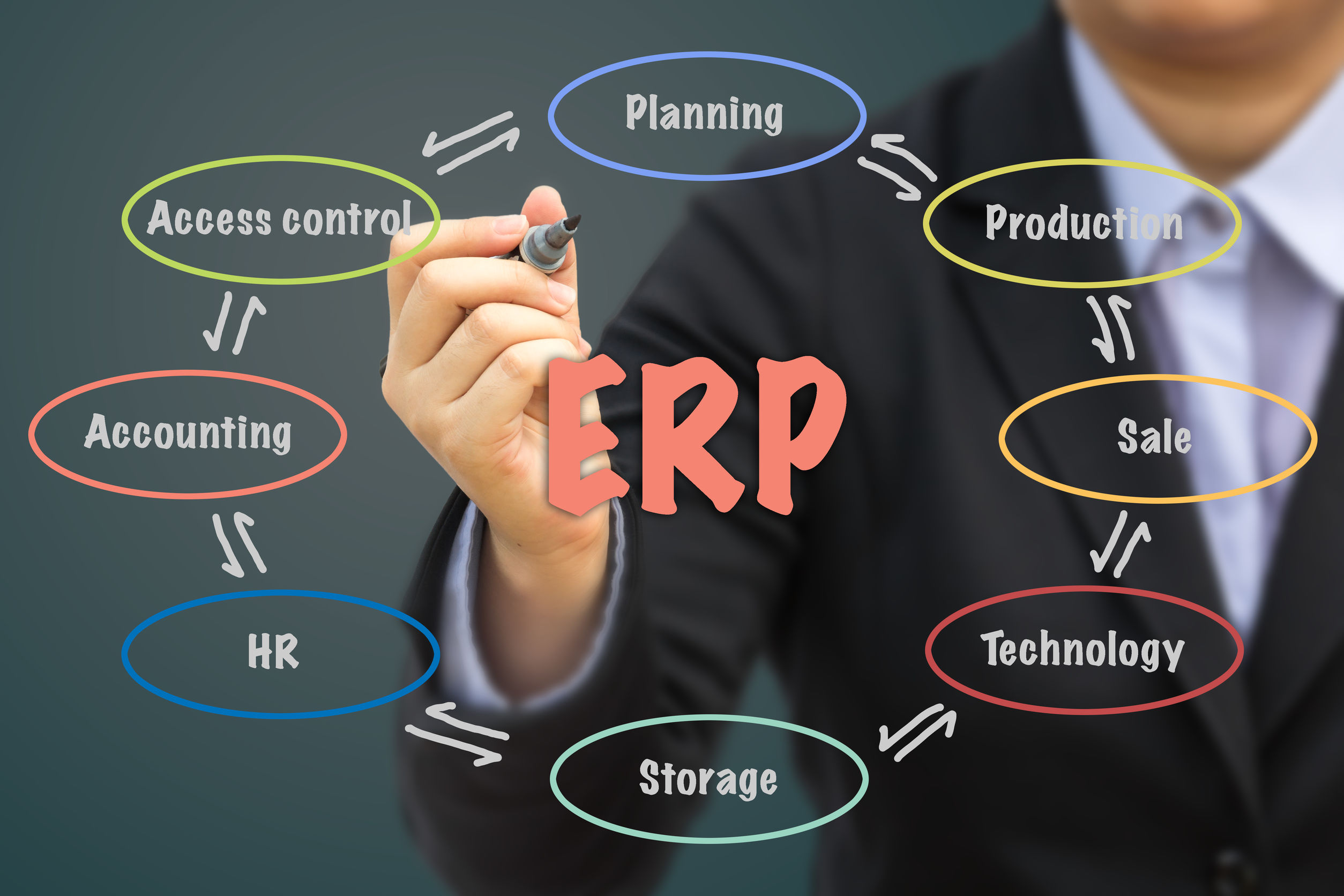An enterprise resource planning (ERP) solution is a great way to integrate your core business processes into a single platform that gives your unparalleled visibility into all of your critical functions in near real time.
But choosing an ERP isn’t as simple as clicking an online ad and swiping your credit card.
There are a lot of ERP solutions on the market, all with a variety of functions and integrations. So how do you know which is the right ERP for your organization? How can you avoid getting lured in by the shiny bells and whistles and actually select an ERP that meets your unique business needs?
The U.S. ERP market continues to grow and is expected to reach almost $50 billion in the next five years.
If you’re in the market for an ERP and are ready to compare products, here are 6 factors you should consider:
1. Understand What You Need From Your ERP
Before beginning your ERP journey, it’s important to understand that while there are a lot of similarities between ERP products, there are also many differences. A good sales person can convince you that his or her product is what you want, but before engaging in these conversations, you should understand what your company actually needs.
A great place to start is by doing a business impact analysis (BIA).
- What are your most critical business systems, processes, and key vendors?
- What would happen if one or more of those stopped functioning?
- How would it affect your abilities to operate?
- What are the pros and cons for ERP adoption based on your current operational processes?
- How could an ERP help your critical operations perform more effectively and with more confidence?
Also consider doing a risk assessment for an ERP in general at the beginning of the process, and then again for each of the solutions that make your short list.
- What risks does an ERP introduce for your business?
- What is your organization’s acceptable level of risk?
- What steps can you take to mitigate risks introduced by an ERP?
- What risks are too high for your organization to accept?
Next, from your BIA and list of critical functions, determine which of those can be handled or supplemented by an ERP. Your ERP should be able to handle all of those core operations to support your success.
In a recent survey of companies considering an ERP solution, here are the top functions they wanted their ERP to handle:
- Accounting
- General ledger
- Accounts receivable
- Accounts payable
- Budgeting
- Financial reports
- Inventory
- Distribution
- Customer relationship management (CRM)
- Sales
- Technology, including integrations and reporting
2. Integration is Key
If you’re an established business, it’s likely you have some core systems and technologies that work well for your company. In such instances, you likely don’t want to reinvent the wheel and adopt a new system, let’s say for eCommerce, just so it will work with your ERP.
Take a deep dive into the ERP vendors you’re considering to see if their products support integrations with the existing software and solutions you want to keep. How does it handle the data and information from those systems? Does it automatically digest (a true integration) that core data or do you have to still manually import and export data from one product into your ERP?
One of the things that makes an ERP a great win for your company is by improving data access and usability across your organization — without having to manually re-enter data from one system to another. Make a list of your existing systems and ask your potential vendors about specific integrations (and support) for those products.
An important thing to note here: some ERP solutions offer these integrations as part of the core product. Others offer them as bolt-on modules, with each new module coming with additional fees for adoption and usage. Be sure to ask your vendor what’s included with the ERP solution and what’s considered an additional module that will require further expense and implementation processes.
3. Consider Scalability
While your ERP solution should meet your current operational needs, it’s also important that your solution can scale and change as your organization grows and your needs change over time.
- How often does the solution do updates and upgrades?
- Does it offer customer support and education for new features and functionality?
- How does the solution’s team handle customer support?
- Is the company open to feedback about product improvements and additional features?
- Does the company use that feedback to help improve the product?
- Does the product work across a variety of work environments including on-site and cloud options?
- What fees are associated with licensing as you add more users over time?
- What are the related maintenance and support costs and are they clearly outlined by the vendor?
- How complicated is it to scale with the vendor? Does it offer APIs to help your team can tackle future integrations and data resources or is it something the vendor has to do for you?
4. Pay Now, Pay Later
When talking about scalability, we touched on licensing fees and maintenance costs. While these are definitely key to consider as your company grows, it’s also important to talk with your potential vendors about actual expected expense both during purchase and implementation and as you maintain the solution over time, not just as your company scales.
- How does the vendor handle consultation and implementation fees?
- What’s the licensing structure and anticipated expense?
- Are there fees related to migrating data for implementation?
- How does the vendor handle maintenance and upgrade fees?
- What other expenses should your company expect upfront and then annually over time?
5. Customer Support for Success
While an ERP should be simple enough to use that you can knock it out of the park once it’s implemented, the reality is any new technology implementation comes with unforeseen issues, so it’s important to know upfront how the vendor handles customer support.
- Does the vendor pair you with an advisor who serves as your core point of contact for questions?
- Does the vendor provide any customer training and education, like onboarding and ongoing updates about product improvements and new features?
- What are the customer support hours? Is the vendor always available or will you have limited customer support times?
- What types of customer support does the vendor offer? Email? Calls? Chat? Videos?
If you’re using an ERP to drive your core business operations, a vendor with a great customer support track record is key. You want to move forward with confidence that if you have any roadblocks — or if the software has a temporary failure or issue — you can resolve it quickly with minimal impact on your business.
6. Get the Inside Scoop
When evaluating ERP solutions, don’t just take the vendor’s word that they successfully deliver what they promise, go to the source — customers. Take the time to seek out product reviews across a variety of websites and sources. Ask your advisor to provide you with contact information of similar customers so you can talk with them about how they use the product, any issues they’ve had, and what their impressions are of whether the product stands up to its claims. Reputable vendors should feel comfortable in helping you access this important information.
Even with these suggestions, narrowing the field to a hit list of ERP solutions for your company won’t always be easy. You might find it helpful to work directly with an advisor who can brainstorm with you, help determine exactly what you need from your ERP, and then clearly define how that product should be implemented today – and then matured in the future — to support your overall successes.
Need help? Connect with an aACE advisor for more information or join us for one of our upcoming webinars to learn how aACE’s ERP solution can work for you.
“After having worked with SAP, Oracle, Great Plains, Navision, and a couple of other smaller solutions, I have never seen a software that can be modified as quickly and yet as cost effectively as aACE in the ERP space.” – Bryan Anderson, Managing Member, AS360




